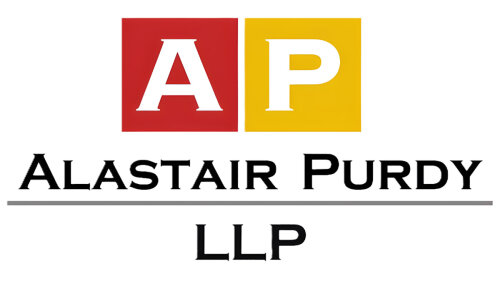Best Employment Benefits & Executive Compensation Lawyers in Galway
Share your needs with us, get contacted by law firms.
Free. Takes 2 min.
List of the best lawyers in Galway, Ireland
About Employment Benefits & Executive Compensation Law in Galway, Ireland
Employment Benefits & Executive Compensation law in Galway, Ireland, forms a critical element of employment law, aimed at ensuring that both employers and employees engage in fair practices related to benefits and compensation. These laws encompass a wide range of issues, including pension schemes, health benefits, bonuses, stock options, and executive remuneration packages. In Galway, businesses must adhere to both Irish national regulations and EU directives, aiming to balance organizational objectives with employee welfare. The legal framework encourages fair compensation practices, enhancing the employer-employee relationship and promoting workplace equality and satisfaction.
Why You May Need a Lawyer
Individuals or businesses may require legal assistance in Employment Benefits & Executive Compensation for several reasons. Employers might seek legal guidance to design or revise benefit packages to ensure compliance with current laws. Employees may need legal advice if they believe they are being unfairly compensated or denied rightful benefits. Other common situations include disputes over executive compensation packages, understanding pension entitlements, handling workplace discrimination related to compensation, or navigating the complexities of contractual obligations related to employment contracts.
Local Laws Overview
In Galway, Ireland, Employment Benefits & Executive Compensation are governed by several key legislations. The Employment Equality Acts 1998-2015 focus on eliminating discrimination related to compensation and benefits in the workplace. The Pensions Act 1990 regulates occupational pension schemes and personal retirement savings accounts, ensuring employees receive their due entitlements. The Organisation of Working Time Act 1997 outlines rights related to rest periods, holidays, and working hours. Finally, companies offering share options or bonuses must comply with tax obligations under the Finance Act. As part of the European Union, Ireland must also abide by EU-wide regulations pertinent to employee rights and benefits.
Frequently Asked Questions
What is included in employment benefits?
Employment benefits typically include health insurance, pensions, paid leave, bonuses, and other perks offered by an employer, often detailed in the employment contract.
Can an employer change my benefits without my consent?
Generally, significant changes to employee benefits require consent, as they form part of the employment contract. Employers are advised to consult with employees and provide appropriate notice of changes.
What should I do if my compensation package seems unfair?
If your compensation package seems unfair, speaking to your HR department may clarify any misunderstandings. If issues remain unresolved, seeking independent legal advice could offer further solutions.
Are bonuses considered part of my regular income?
Bonuses may be considered part of your regular income for taxation and contractual purposes, depending on the terms outlined in your employment agreement and company policy.
How are pensions protected by law?
Pensions are protected by the Pensions Act, which outlines the rights and obligations of employers and the protections available to employees ensuring their retirement benefits are safeguarded.
What is executive compensation?
Executive compensation refers to the remuneration packages designed for senior executives, often involving salaries, bonuses, stock options, and additional incentives aligning the executives’ interests with the company’s long-term goals.
How can I address a dispute regarding my benefits?
Initially, attempt to resolve benefit disputes internally through your HR department. If an agreement cannot be reached, consulting a lawyer specializing in employment law can help address and potentially resolve the issue legally.
Is health insurance mandatory for employers to offer in Ireland?
While offering health insurance isn't legally mandatory, many employers include it as part of the benefits package to attract and retain talent in the competitive job market.
What are my rights concerning sick pay?
Sick pay varies by employment contracts and policies, but statutory sick leave and pay entitlements are a baseline provided under recent legislative updates to protect employees during illness.
How do stock options work as part of compensation?
Stock options give employees the right to purchase company shares at a set price within a specified period, often used as a long-term incentive aligning employee interests with company performance.
Additional Resources
For further assistance, consider contacting governmental bodies or organizations such as:
- The Workplace Relations Commission (WRC) for issues related to employment rights.
- The Pensions Authority for guidance on pension entitlements and rights.
- Citizens Information for comprehensive advice on employment law and rights.
These organizations offer valuable information and support for handling employment-related queries and disputes.
Next Steps
If you need legal assistance in Employment Benefits & Executive Compensation, start by gathering all relevant documents like employment contracts, benefit statements, and communication records. Consult a local solicitor specializing in employment law to discuss your concerns and explore your legal options. It is often beneficial to seek recommendations or conduct research to find a lawyer with experience and a comprehensive understanding of the local employment law landscape in Galway, Ireland.
Lawzana helps you find the best lawyers and law firms in Galway through a curated and pre-screened list of qualified legal professionals. Our platform offers rankings and detailed profiles of attorneys and law firms, allowing you to compare based on practice areas, including Employment Benefits & Executive Compensation, experience, and client feedback.
Each profile includes a description of the firm's areas of practice, client reviews, team members and partners, year of establishment, spoken languages, office locations, contact information, social media presence, and any published articles or resources. Most firms on our platform speak English and are experienced in both local and international legal matters.
Get a quote from top-rated law firms in Galway, Ireland — quickly, securely, and without unnecessary hassle.
Disclaimer:
The information provided on this page is for general informational purposes only and does not constitute legal advice. While we strive to ensure the accuracy and relevance of the content, legal information may change over time, and interpretations of the law can vary. You should always consult with a qualified legal professional for advice specific to your situation.
We disclaim all liability for actions taken or not taken based on the content of this page. If you believe any information is incorrect or outdated, please contact us, and we will review and update it where appropriate.














